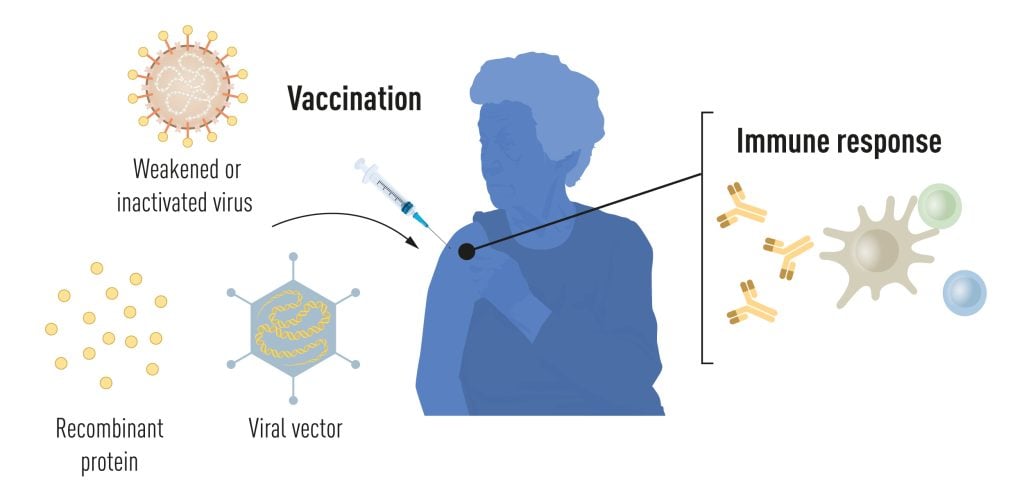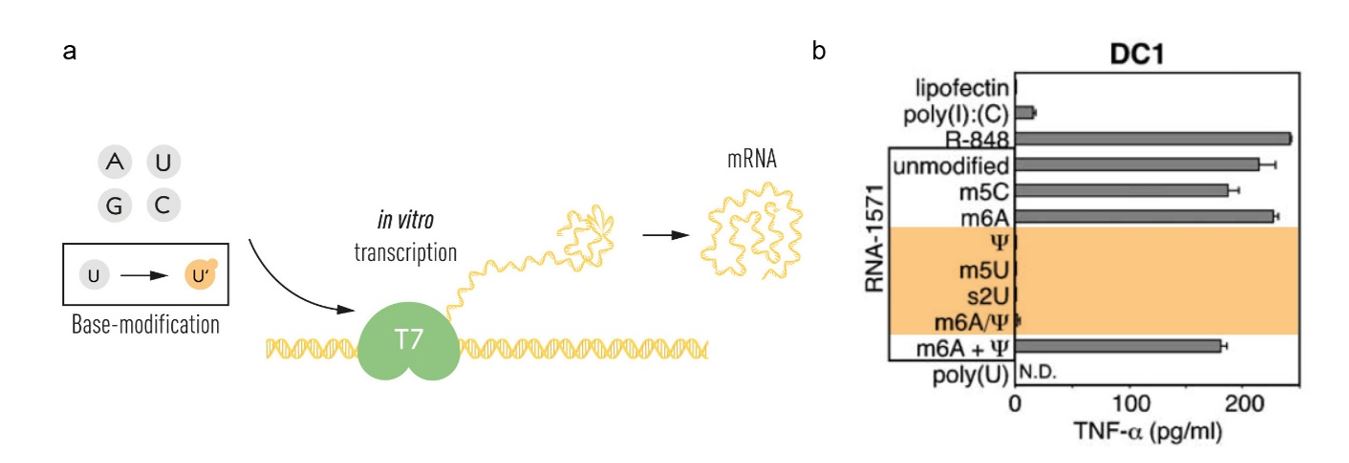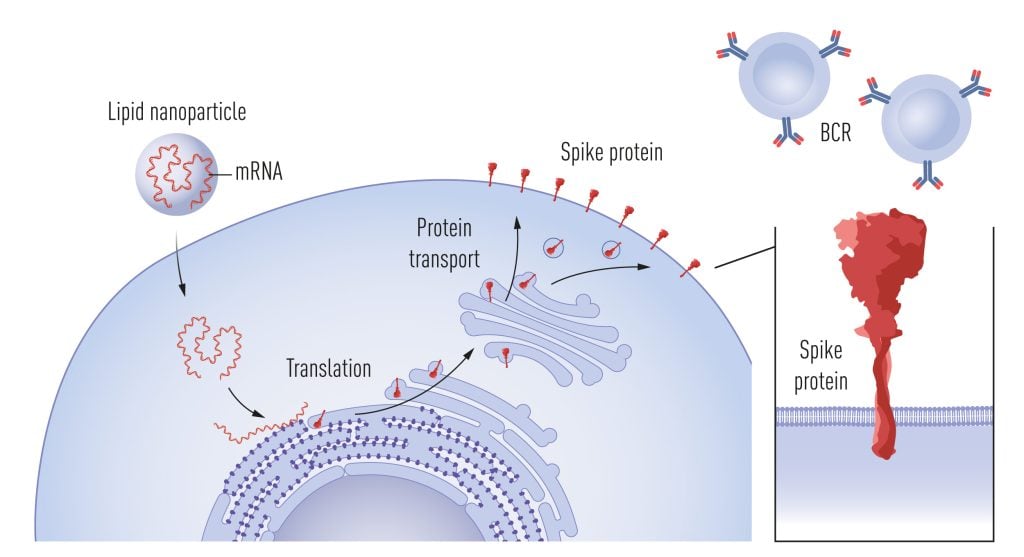Date:2023/10/07 Chinese

The 2023 Nobel Prize in Physiology or Medicine was awarded jointly to Katalin Karikó and Drew Weissman "for their discoveries concerning base modifications that enabled the development of effective mRNA vaccines against COVID-19"
The Nobel Assembly at Karolinska Institutet awarded the 2023 Nobel Prize in Physiology or Medicine jointly to Katalin Karikó and Drew Weissman for their discoveries concerning nucleoside base modifications that enabled the development of effective mRNA vaccines against COVID-19.
The 2023 Nobel Prize in Physiology or Medicine has been jointly awarded to Hungarian-American biochemist Katalin Kariko and American physician-scientist Drew Weissman, for work on messenger RNA (mRNA) technology that paved the way for groundbreaking COVID-19 vaccines.
The Nobel Prize Committee in its statement said, the groundbreaking findings of Prof Karikó and Prof Weissman, have fundamentally changed the understanding of how mRNA interacts with a human being's immune system. It said, the laureates contributed to the unprecedented rate of vaccine development during one of the greatest threats to human health in modern times.
The mRNA vaccines were approved for use in December 2020, and together with other Covid vaccines have saved millions of lives and prevented severe disease. During the Covid-19 outbreak that began in early 2020, time was of the essence in finding a weapon against the deadly and fast-spreading virus. This is where mRNA technology proved crucial.
Vaccines train the immune system to recognise and fight threats such as viruses or bacteria. Unlike traditional vaccines which use a weakened virus or a key piece of the virus' protein, mRNA vaccines provide the genetic molecules that tell cells what proteins to make, which simulates an infection and trains the immune system for when it encounters the real virus. The technology was experimental before the pandemic but has now been given to millions of people around the world. During the pandemic, the Moderna and Pfizer and BioNTech vaccines were based on mRNA technology. The same mRNA technology is now being researched for other diseases, including cancer.
Kariko and Weissman, longstanding colleagues at the University of Pennsylvania in US, have won a slew of awards for their research, including the prestigious Lasker Award in 2021, often seen as a precursor to the Nobel.
Discoveries concerning nucleoside base modifications that enabled the development of effective mRNA vaccines against COVID-19

Figure 1. Methods for vaccine production before the COVID-19 pandemic.
Currently used vaccines are made from weakened or inactivated whole viruses, recombinant viral protein components (subunit vaccines), or viral vectors delivering antigens of interest (vector vaccines). The vaccination event stimulates antigen-specific immune responses, which provide protection if the vaccinated person is later exposed to the live pathogen. © The Nobel Committee for Physiology or Medicine. Ill. Mattias Karlén

Figure 2. Evaluation of in vitro transcribed mRNA with or without base modifications and transfection into primary dendritic cells.
(a) The T7 in vitro transcription system was used to produce mRNA with canonical RNA bases (A, U, G and C) or modified bases. (b) The bases used for in vitro transcription of RNA-1571 are shown, with those that did not result in TNF-a secretion indicated in orange (modified from Karikó et al. Immunity 2005). © The Nobel Committee for Physiology or Medicine. Ill. Mattias Karlén

Figure 3. Higher protein expression from base-modified in vitro-transcribed mRNA. Base-modified in vitro transcribed mRNA was produced where uridines (U) were substituted with pseudouridine (ψ). When base-modified mRNA was introduced into cells, an increased protein production compared to that achieved with unmodified mRNA was observed. © The Nobel Committee for Physiology or Medicine. Ill. Mattias Karlén
 Figure 4. Spike production following mRNA vaccination and recognition of spike by B cells.
Figure 4. Spike production following mRNA vaccination and recognition of spike by B cells.
Following uptake of mRNA into cells, facilitated by lipid nanoparticles, the mRNA acts as a template for spike protein production. Spike is then transiently expressed on the cell surface, where it is recognized by B cells via their B cell receptors (BCRs), stimulating the secretion of spike-specific antibodies. © The Nobel Committee for Physiology or Medicine. Ill. Mattias Karlén
The approval of two effective and safe COVID-19 mRNA-vaccines in late 2020 propelled the mRNA vaccine field into a new era. The discovery that the use of modified bases in in vitro-transcribed mRNA circumvents undesired inflammatory responses and increases protein production following in vivo delivery demonstrates the value of basic research. The results published by Karikó and Weissman in their seminal 2005 paper received little attention at the time but laid the foundation for critically important developments that have served humanity during the COVID-19 pandemic.
Nobel Prize for Medicine goes to Kariko and Weissman, pioneers of COVID vaccine
Katalin Karikó and Drew Weissman, who together identified a chemical tweak to messenger RNA, were awarded the Nobel Prize in Physiology or Medicine on Monday. Their work enabled potent Covid vaccines to be made in less than a year, averting tens of millions of deaths and helping the world recover from the worst pandemic in a century.
The approach to mRNA the two researchers developed has been used in Covid shots that have since been administered billions of times globally and has transformed vaccine technology, laying the foundation for inoculations that may one day protect against a number of deadly diseases like cancer.
The slow and methodical research that made the Covid shots possible has now run up against a powerful anti-vaccine movement, especially in the United States. Skeptics have seized in part on the vaccines’ rapid development — among the most impressive feats of modern medical science — to undermine the public’s trust in them.
But the breakthroughs behind the shots unfolded little by little over decades, including at the University of Pennsylvania, where Dr. Weissman runs a lab.
From mRNA to electrons: Here's who won Nobel Prizes in 2023
In May 2023, the World Health Organization declared the end of COVID-19 as a global health emergency. The pandemic claimed more than 6.9 million lives in three years.
The speed with which vaccines against the virus were produced was unprecedented. At the time of writing, more than 13.5 billion doses of COVID-19 vaccines have been administered and more than 70% of the global population has received at least one dose.
Now two scientists whose research led to the development of the Pfizer-BioNTech and Moderna COVID-19 mRNA vaccines have been awarded the Nobel Prize for Medicine, the first laureates to be named this year.

Nobel Prize for Physiology or Medicine
Hungarian scientist Katalin Kariko and her US colleague Drew Weissman met in the queue for the photocopier in 1998 – and went on to work together.
In 2005, they overcame a major hurdle in the use of messenger RNA (mRNA) technology, developing "nucleoside base modifications", which stop the immune system from launching an inflammatory attack lab-made mRNA.
"We couldn't get people to notice RNA as something interesting," Weissman said. "Pretty much everybody gave up on it."
Kariko is a former senior vice president and head of RNA protein replacement at German biotech firm BioNTech, which developed an mRNA COVID-19 vaccine with Pfizer.
"The laureates contributed to the unprecedented rate of vaccine development during one of the greatest threats to human health in modern times," said the Nobel Assembly of Sweden's Karolinska Institute medical university.
“Nothing distracts me from my work”
“We weren’t sure it was true!” Drew Weissman’s research partner and co-laureate Katalin Karikó called him early this morning with some incredible news – they had both been awarded the 2023 Nobel Prize in Physiology or Medicine. The two have a 20 year history of working together. “We both have sleep disturbances,” he says in this conversation with the Nobel Prize’s Adam Smith, “so usually around 3 to 5 a.m. we would be emailing each other with new ideas.” Speaking just after he had heard of the award, he stresses that despite his new found notoriety and all the claims on his time, “Nothing distracts me from my work.” As to the effect of the Nobel Prize: “This just encourages us more!”
The call from Stockholm woke Katalin Karikó at her home outside Philadelphia. Initially in disbelief, in this interview with Adam Smith, recorded soon after she had learnt of the award of the Nobel Prize for discoveries that accelerated the introduction of vaccines for Covid-19, she recalls her journey from Hungary and some of the setbacks on the path to the mRNA vaccines. "10 years ago I was here in October, because I was kicked out and forced to retire!" Her advice is to not to dwell on the problems: "You have to focus on the things you can change."
Nobel Prize Winners Dr. Katalin Karikó and Dr. Drew Weissman | The Story Behind mRNA Vaccines